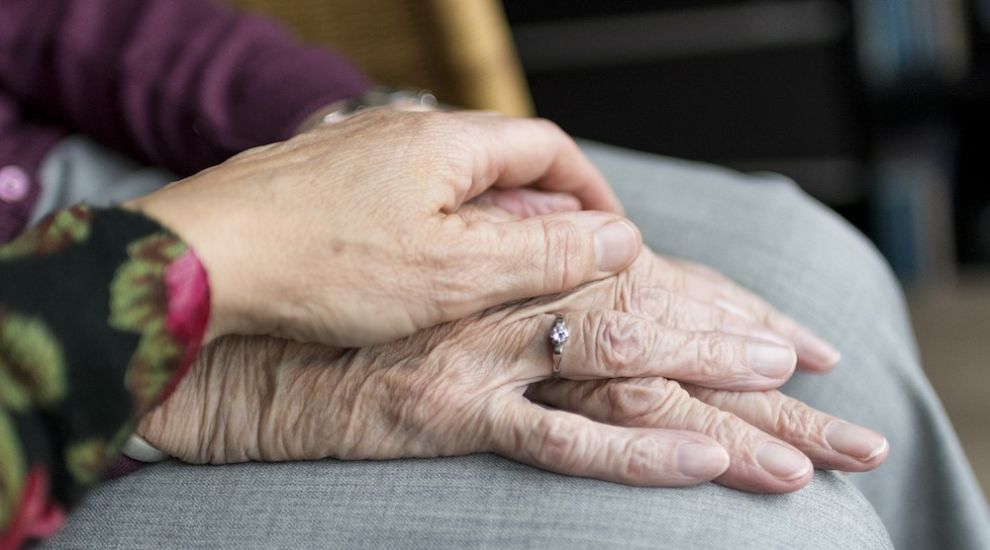


Staff shortages pose “a potentially catastrophic risk to Jersey's care services” - with providers constantly in “firefighting mode”, and one recently forced to cancel 300 hours of work per week at short notice.
That’s according to the Jersey Care Commission, which has today published a report warning that unless the situation is urgently addressed, it will “be unable to provide sufficient assurance of the future stability of the social care sector”.
It expresses concern that several registered providers are at increasing risk of breaching regulations and care standards as increasing complexity and dependence requires higher levels of experienced staff and management support.
Among the specific risks identified by the commission are:
deepening recruitment and retention pressures;
providers having to hand back care contracts – one provider recently had to cancel 300 hours per week at short notice;
providers often working in "firefighting mode";
an increasing need for the commission to support providers struggling to meet statutory requirements;
deepening cost pressures;
lack of data to ensure demand and capacity are fully understood to predict future requirements; and
a lack of clear strategy to understand the future requirements and challenges of the care sector.
Commenting on the conclusions of the report, which was labelled 'Addressing challenges and risks in social care', the Commission's Chief Inspector Becky Sherrington said: "The Commission, by producing this report, is wishing to stimulate thought and debate on the level of current risk. We are also urging the government to consider how it supports the social care market, which is required to continue to deliver a wide range of sustainable high-quality care services within the community."
This year the commission carried out more than 120 inspections and established that the qualify and safety of care delivered in care homes and the community was generally good but it says that emerging from the pandemic, it has evidence that the sector is "experiencing significant challenges and risks which, without a mitigating plan in place, will adversely impact on outcomes and the quality of care".
The report states: "The supply of care staff is failing to keep pace with demand and posing a potentially catastrophic risk to Jersey's care services. If not addressed, the commission will be unable to provide sufficient assurance of the future stability of the social care sector."
It draws attention to rising vacancy rates among care staff – between 10 and 30% according to a survey of 32 providers – an increase in demand on local care services, and reports from providers that workforce shortages are adversely impacting on the sector's capacity and capability.
"There is a growing concern that if a care provider, for whatever reason and at short notice, is unable to continue operating, the care sector in Jersey does not have capacity to pick up the shortfall," the report says.
The commission says that the government should consider how it can assist and support the care sector to deliver sustainable services taking into account the increasingly ageing local community.
It recommends considering a single point of contact between the government and social care providers; a modelling exercise to predict future needs; development of a market oversight team to support the sector; reviewing government policies impacting on recruitment of overseas workers; government considering how to facilitate appropriate training; taking account of care sector needs when reviewing housing support; and considering policies and budgets to support care providers cope with rising cost pressures.
Responding this morning, the Health Minister said it was "clear" that the Government "must do more, and do so quickly."
"Over the last few months, the Chief Minister has established a new Population and Skills Ministerial Group focused on addressing the barriers to recruitment and retention of key workers in Jersey, including barriers related to housing and access to health care, and on maximising the participation of the existing island workforce," Deputy Karen Wilson said.
"The Chief Minister has already taken direct action to extend care agencies' ability to recruit skilled workers from off-island.
"Furthermore, in response to the recent review of clinical governance in the Health and Community Services Department, I have committed to establishing a strategic health unit which will lead on policy and strategy. This unit will coordinate and strengthen the relationship between the Sector and the whole of Government, ensuing a single point of leadership through myself as Minister for Health and Social Services.
"This work is a starting point, but I recognise that we need to build both capacity and resilience into our system. We need a better understanding of current and future demand; we need more skilled workers, people who feel respected and valued for the work they do and – as rightly pointed out by the Jersey Care Commission – we need to support care providers to manage inflationary pressures while avoiding passing spiralling costs on to members of our community.
"I would like to thank the Jersey Care Commission for their work. In publishing this report, they are urging government to consider how it can better support the social care sector. I am accepting that challenge."
Comments
Comments on this story express the views of the commentator only, not Bailiwick Publishing. We are unable to guarantee the accuracy of any of those comments.